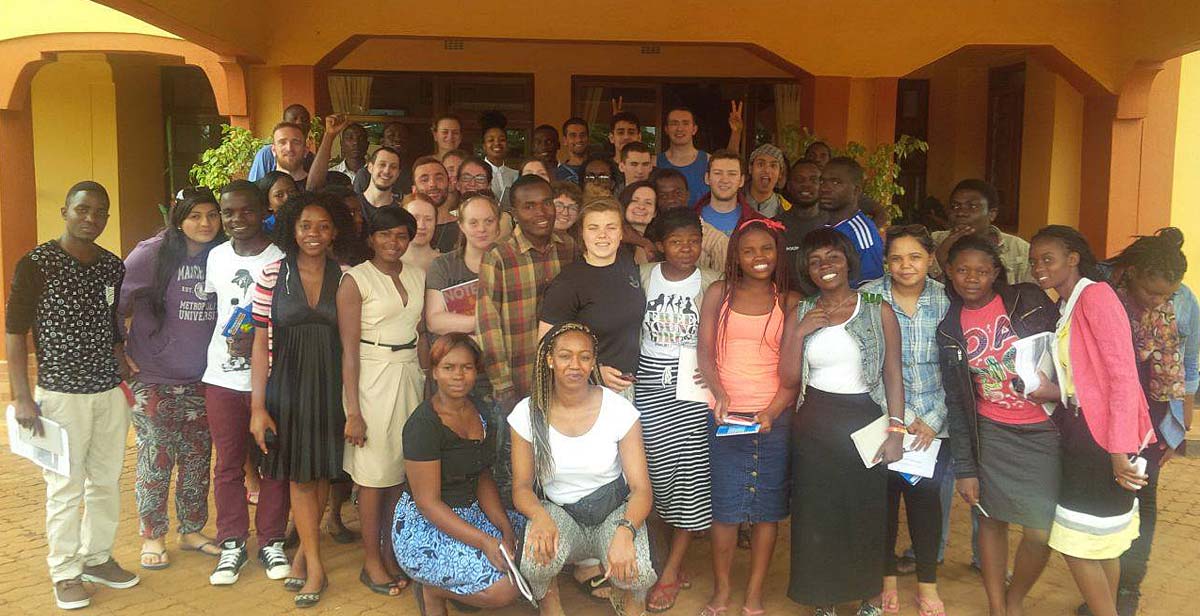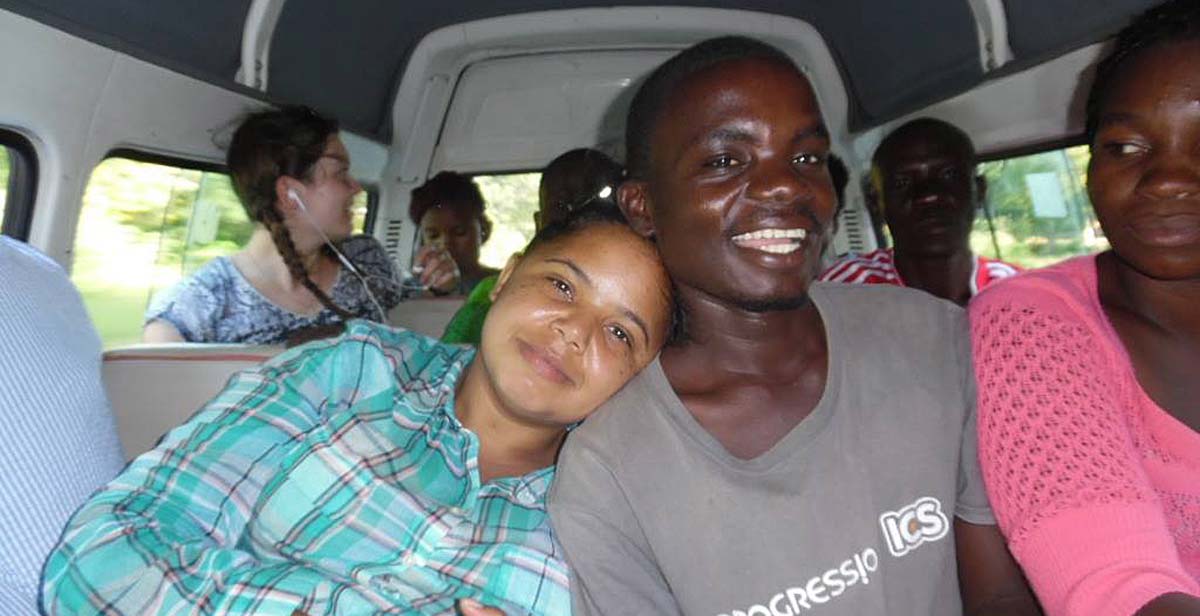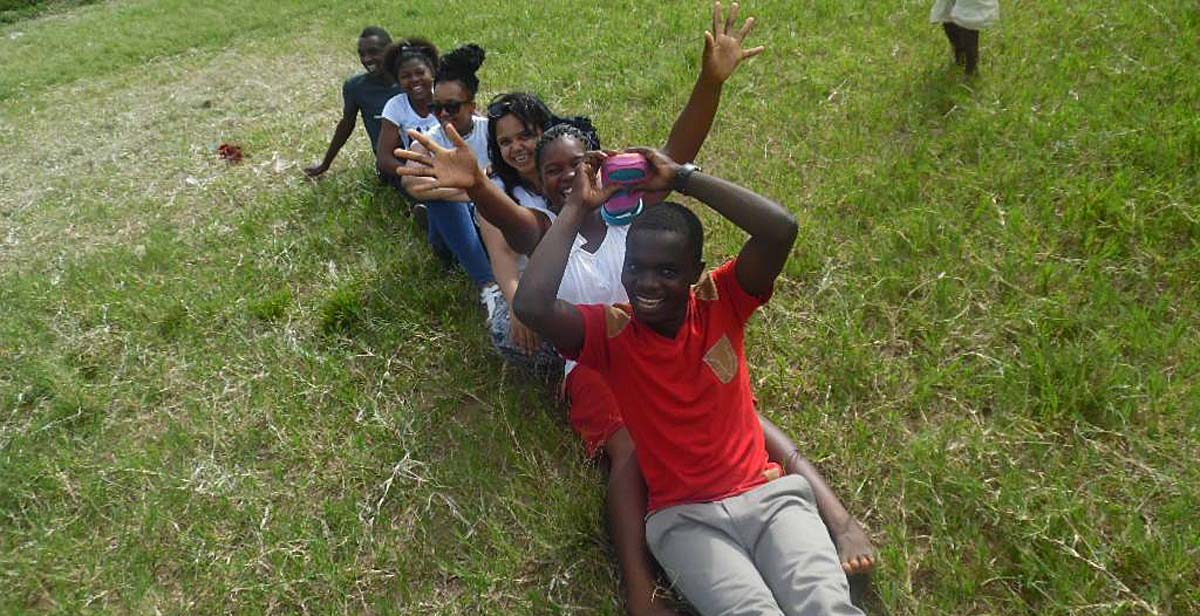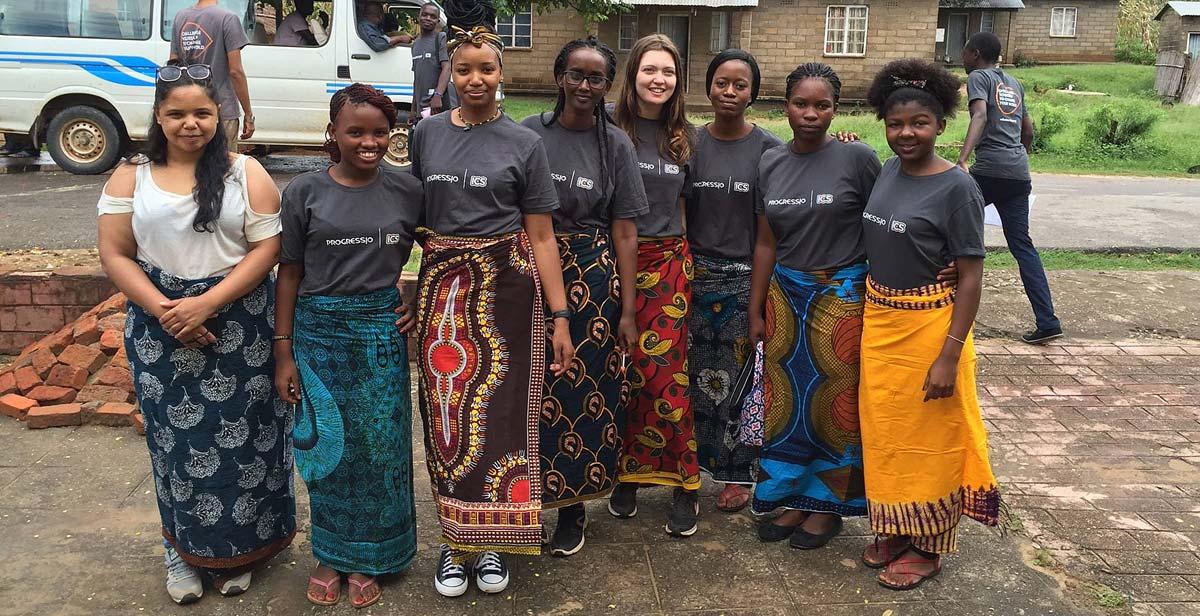During one of the nights at our in-country training in Lilongwe, I remember being quite annoyed. Once I tell you the reason, you're going to think "urgh, what a brat". To be honest, looking back at the moment retrospectively, I was being a little madam. The reason behind my annoyance was that some of our fellow Malawian volunteers were playing a really loud game, which required them to sing and bounce a ball. They were playing this right outside of my room. I was annoyed because I felt they were disturbing my silence as I was desperately trying to get connected to the internet.

So what was the point in that story? The significance of that moment was that, after taking a step back and assessing the situation, I realised that myself and fellow UK volunteers had forgotten how to live life simply, embrace moments and just be damn happy! What I saw from the national volunteers was an almost child-like bliss and happiness that we, the British, lose pretty much when we start secondary school. While the national volunteers were having what looked like a good time, I, on the other hand, was getting wound up and stressing myself over something that really didn't matter. I have therefore summarised three things (or lessons) which I believe all of us Brits could learn from our Malawian friends.
If we take a moment and look back at our lives in the UK, when we visit places - whether it be your friend's house or a coffee shop - most of the time, we enquire about the Wi-Fi password. I'm not saying this is what all Britons do, but I'm sure most of us reading this can remember at least one time where they were guilty of this socially acceptable crime. I call it a crime because we have somehow made it okay to be unsociable in a social context. The irony is that this is due to so-called "social" media. So I propose that the first lesson we can learn from our friends is to be present in the present. After all, it is a gift.

An extension of this aforementioned lesson is that of self-consciousness. The average 18-25 year old would not think to play, for example, 'duck duck goose' with their peers. If it was suggested, it would be perceived as strange or odd. While here, it feels more comfortable to do things out of your comfort zone as no one will really judge you. Another example I noted was during one of our workshops out in a rural community. My fellow volunteer, Olivia, and I were tasked with the job of entertaining the kids. We had to break into our best performance of 'head shoulders knees and toes!’ It felt so awkward and bizarre at first, but it's safe to say we probably enjoyed it more than the kids. In the UK, I would be horrified at the thought of singing my heart out, especially a nursery rhyme. Thus, the second lesson we can learn is of acting oblivious to the fact that there are people around you. Essentially, let's not care so much about what people think of us.

I now pose a question to my fellow Brits: when was the last time you simply smiled and said hello to a complete stranger? I don't mean to start a North/South debate, but let's be honest, Northerners are a little less guilty of this. Jokes aside, most of us do not crack a smile and wish a stranger a good day. In Malawi, this is common practice. Furthermore, it's normal to greet someone you had already seen earlier in the day; this means you could end up greeting the same person three or four times a day. One might argue the novelty and sincerity of the greeting is lost as the day goes. I, on the other hand, counter-argue that it's always as authentic as the first "good morning”.
Although we are foreigners in Malawi, the sense of community, meekness and humility that its citizens possess has made us feel right at home already. Finally, I contend my final lesson and perhaps the most important: let us humble ourselves, let us be kind and let us simply say "hello" to our fellow human beings.
Written by ICS volunteer Nicole Moyo



